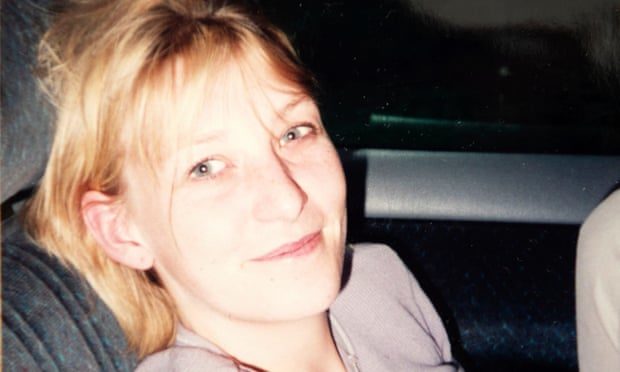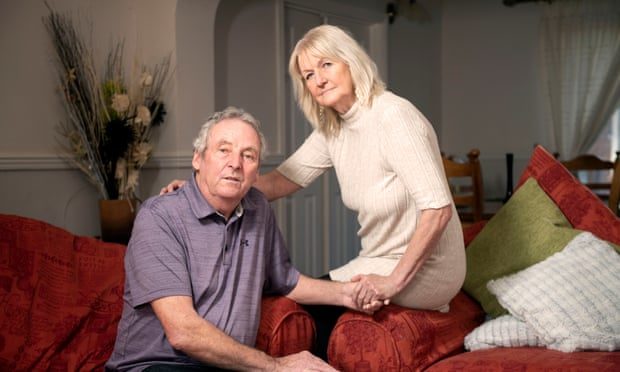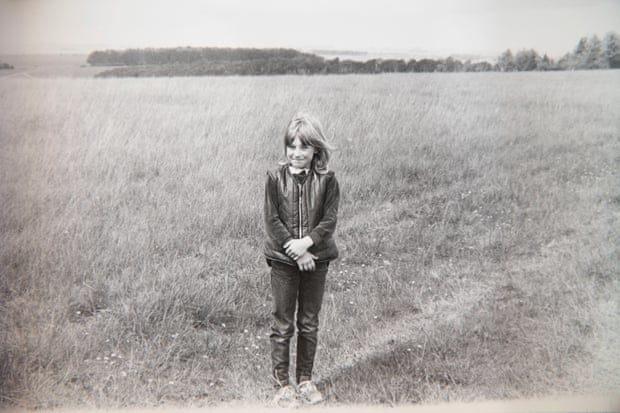
Udtalende sig mens et-årsdagen fro forgiftningen nærmer sig, så afslører, Stan og Caroline Sturgess deres bekymringer for at de britiske myndigheder valgte at bosætte den tidligere russiske spion Sergei Skripal i Salisbury og derved udsætte beboerne for en risiko.
Ægteparret fortalte the Guardian at de stadig havde mange ubesvarede spørgsmål og stillede et ønske om mere klarhed fra den britiske regering om forgiftningerne. De talte også bevæget om deres følelse af uretfærdighed at Dawn, en mor til tre børn fra en meget respektabel familie på urimelig vis var blevet karakteriseret som værende en hjemløs stofmisbruger.
Kommentar: Denne artikel er delvis oversat til dansk af Sott.net fra: Parents of woman killed by 'poison used on Skripal' blame... UK govt, British media, but not Russia
The Sturgesses have complicated feelings toward Skripal and his daughter, Yulia, who collapsed after being poisoned with novichok in Salisbury and are now in hiding. "I don't know where Skripal is and I don't know what I'd do if I met him. He's still got his daughter," said Stan, a retired bricklayer.
Caroline said: "It's sad they ended up in a coma but they weren't the true victims. He [Skripal] took risks - he must have known there was a chance people were still after him."
The couple said they did not hate Russia, which has been accused by the British government of carrying out the attack. "I can't take it personally," said Caroline, a retired civil servant. Stan added: "If they'd targeted Dawn specifically, it would be different." He said of the Skripals' alleged attackers: "I don't care if they are arrested or put in prison."
But he continued: "I want justice from our own government. What are they hiding? I don't think they have given us all the facts. If anyone, I blame the government for putting Skripal in Salisbury."
The Skripals collapsed in Salisbury on 4 March last year after being poisoned with novichok at Sergei's home on the outskirts of the city. On 30 June, Dawn, 44, and her boyfriend, Charlie Rowley, fell ill at his home in Amesbury 11 miles north of Salisbury.
At first, police believed they had taken contaminated drugs, but tests showed they had been poisoned with novichok. The Skripals and Rowley survived but Dawn died on 8 July. Rowley later revealed the novichok had been in a perfume bottle and that she had sprayed the oily liquid over her skin. He said he had found the bottle and given it to her as a gift.
Stan and Caroline, stalwarts of the village of Durrington in Wiltshire, are angry at how their daughter was initially portrayed. They believe suggesting she and Rowley were troubled and irresponsible suited the narrative that they were harmed partly because of their lifestyle. Caroline said: "They were trying to get out the message that 'this couldn't happen to you, don't worry, it's because of their lifestyle'."
They trust Rowley's memory of the perfume bottle being in a sealed box, even though this undermines the idea that the novichok Dawn came into contact with was the same as was used in the attack on Skripal more than three months before.
"I think Charlie would remember that. I do believe it was sealed," said Caroline. Asked how they believed Rowley came by the novichok, Caroline said: "I think he stumbled on it. I believe he had only just found it. If Charlie had found it in a bin in March he would have given it to Dawn straight away."
The Sturgesses believe more novichok could be found in Wiltshire. "This could happen again," said Caroline. "There could be another package out there."
Describing her daughter, Caroline said: "She was bubbly, intelligent, witty and very upbeat. She wanted everybody to be happy. She would help everyone. She was very strong and very brave."
Stan speaks of Dawn as a gentle hippy, who had always loved visiting nearby Stonehenge. She had worked as a flower picker in Cornwall and in a pub. The Sturgesses accept Dawn had troubles. They said she had issues with alcohol but did not take drugs.
Her parents believe Dawn was on the up at the time of her death. She was in a happy relationship with Rowley and was about to move into her own flat. "Dawn was really turning a corner," said Caroline.
When Dawn collapsed, Rowley rang Caroline in a panic but she heard nothing more that day and believed Dawn must have been fine. Next day, the intensive care team at Salisbury district hospital called.
Dawn's family had to wear gloves when they visited her as doctors and scientists worked to understand what had made her and Rowley ill. Dawn was unconscious and on life support. They were able to touch her but were told not to brush their own skin with their fingers after contact. "At one point I was stroking her hair and I started crying," said Caroline. "I went to wipe a tear away. A consultant told me: 'Don't touch your face.'"
Three days after Dawn and Rowley collapsed, preliminary tests showed they may have been exposed to a nerve agent. A consultant broke the news to the family and police advised them to leave their home as the media would be arriving on their doorstep.
The family gathered in a car park near Salisbury and fled to a hotel 40 miles away. They felt isolated, disorientated, unsupported and too far away from Dawn's hospital bed.
"It was the most bizarre thing," said Caroline. "We didn't know where to go or what to do." They returned to Dawn's bedside. Doctors told them that when their daughter collapsed she had been starved of oxygen for 25 minutes. She also subsequently suffered a bleed to the brain.
"I can't get the image of her on the machines out of my head," said Caroline. "I keep picturing myself stroking her hair thinking she was going to die." Her final words to Dawn were: "You've got to do what you've got to do." Stan said he liked to think that, in effect, she died not in hospital but in Rowley's flat with the man she was in love with.
Once the life support machines were switched off, the family were told Dawn's body might have to be incinerated at the government laboratory at Porton Down. They were thankful that, in the end, they were able to organise a moving funeral at the crematorium in Salisbury and saved a seat at the front for Rowley, who by now had been discharged from hospital.
"That was definitely for Dawn, it's what she would have wanted," said Caroline. They do not blame Rowley for Dawn's death. Caroline said: "Dawn loved him. He adored her. Charlie was kind to her." A charity helped them cover the funeral costs. "I don't think we should have relied on charity to bury our daughter," said Caroline.
It was difficult for the family to mourn properly. Stan said: "You couldn't really grieve, it was very scientific. The police, the scientists, the coroner were doing what they were doing. The country was in uproar."
In an odd way, Dawn's parents were relieved when it became clear she had been poisoned with nerve agent rather than contaminated drugs or drink. "The press had given us such a crap time," said Stan. "When we found out it was novichok we were relieved to have the confirmation that it wasn't her fault."
Caroline took huge comfort from the fact that no recreational drugs were found in her daughter's bloodstream and no disease in her liver or other organs. "When they said it was purely because of the novichok it was a huge relief. She was innocent. It wasn't her lifestyle that killed her."
Dawn's parents also take comfort from the fact that children had not found the perfume bottle. "What if schoolchildren had picked it up and sprayed each other? That would have been the worst," said Caroline. "I feel thankful that Dawn took a bullet for many other people. I'm sorry we lost our daughter. I'm thankful it wasn't children."
They are also very grateful to the hospital staff who cared for Dawn, and to the village of Durrington, which has offered unwavering support.
The Sturgesses have Dawn's ashes at home in a shrine beside her favourite toy as a child - a unicorn - and a pencil sketch of her done by a relative. They like to think of Dawn looking down on them. "She told her sisters she was going to go out in a blaze of glory. She flippin' did." said Caroline.
Stan recalled how Dawn was knocked down in a car collision five years ago. "I was there. I said to her: 'What do you want me to do?' She said: 'Take me home.' So I carried her and took her home. This time I couldn't do that, I couldn't help her."






Læserkommentarer
dig vores Nyhedsbrev